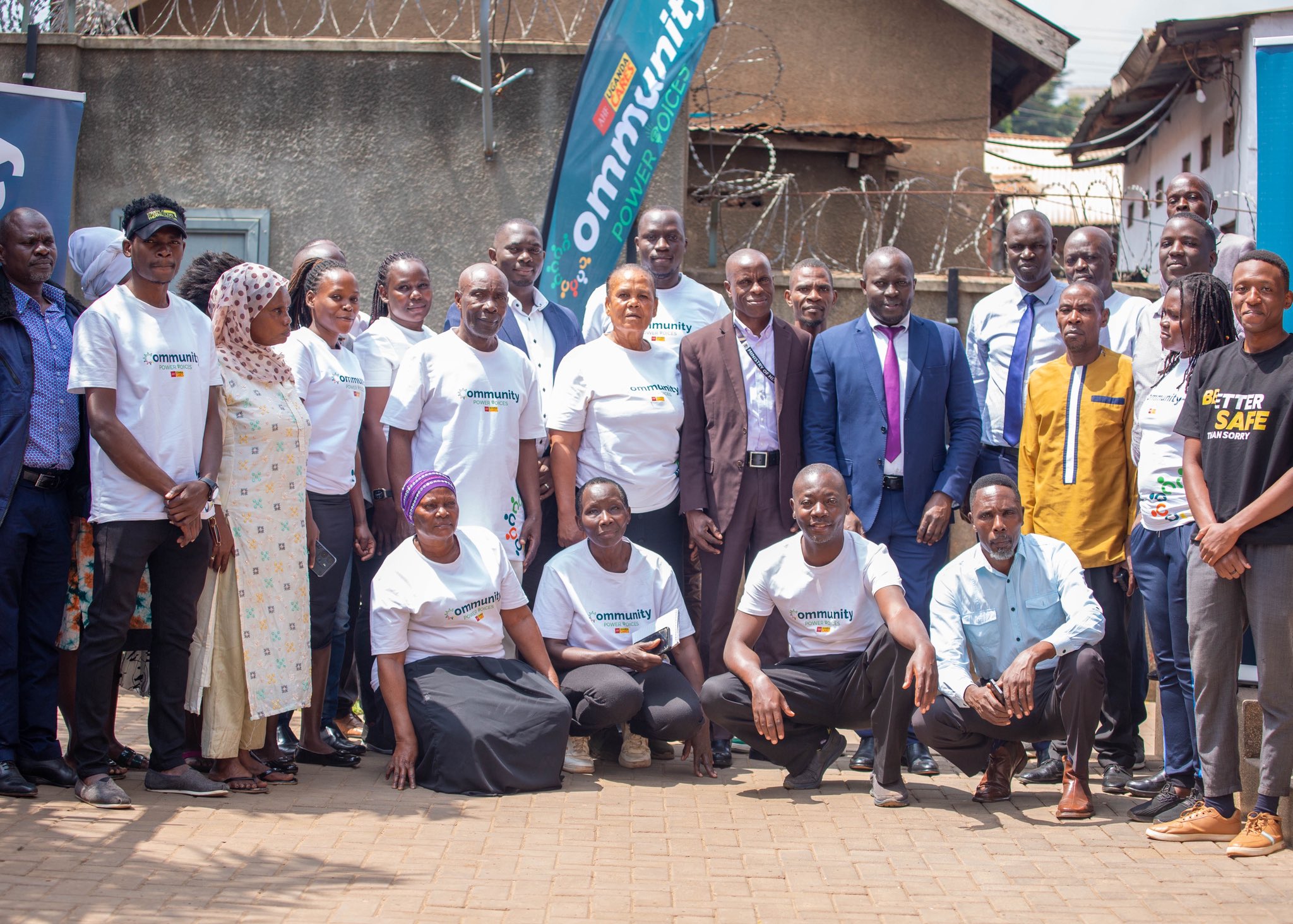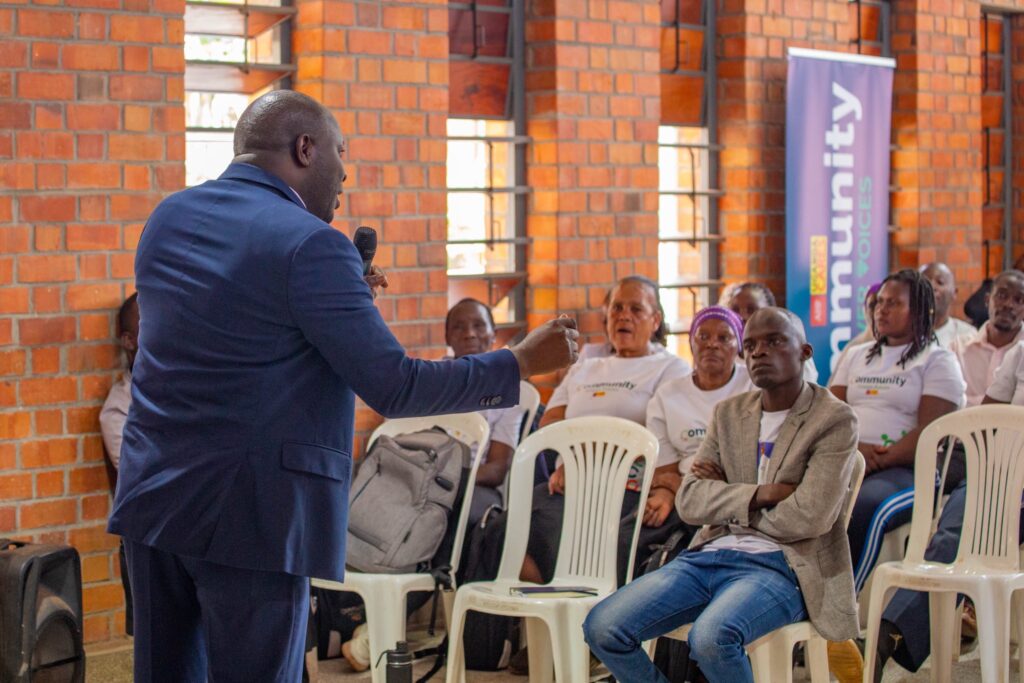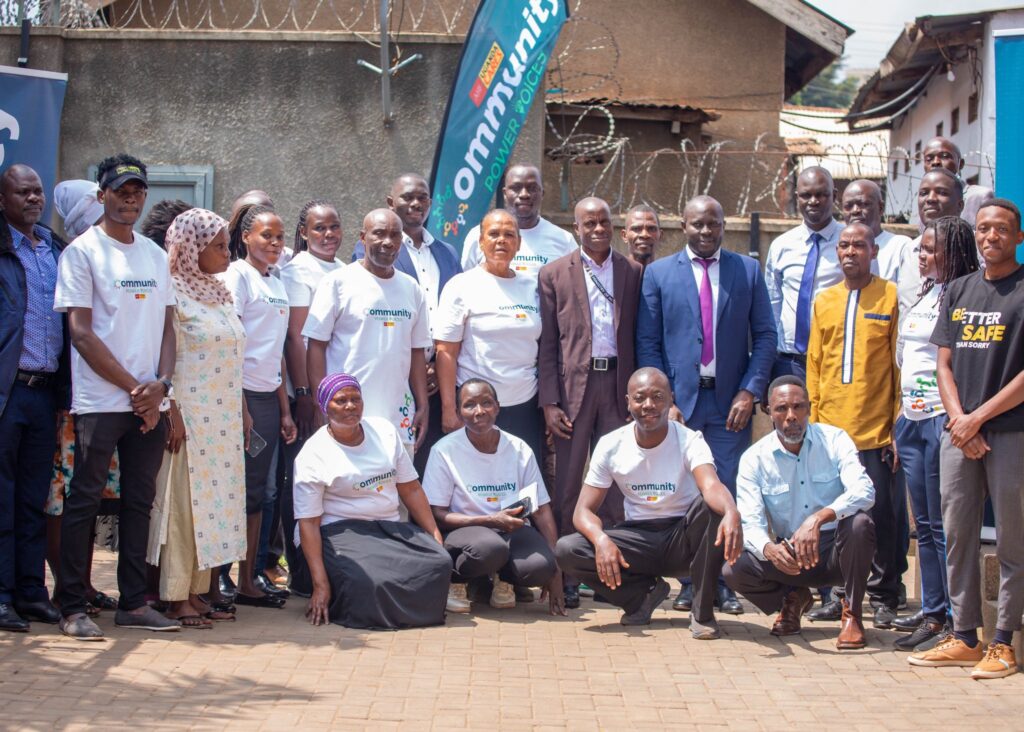
 Mama FM
Mama FM

 Mama FM
Mama FM
29 August 2025, 5:58 pm

By Mosh Ddamba
The Ministry of Health (MOH), in partnership with Uganda Cares and Community Power Voices (CPV), held a community dialogue at TLC Kamwokya aimed at combating stigma against HIV/AIDS and TB-affected persons through an integration strategy. The event brought together cultural, church, and local leaders to discuss community feedback and support for the initiative.
Dr Robert Mutumba, Assistant Commissioner of the AIDS Control Program at MOH, revealed that after the Trump administration cut funding, the ministry introduced a clinic integration strategy to sustain service delivery. The model merges HIV clinics with general hospital services, allowing HIV-positive patients to receive treatment like any other patient, thereby reducing stigma.
“We want HIV patients to attend hospitals, be treated like any other patient, collect their medicines, and leave without being segregated into special clinics,” Dr Mutumba said.
He urged patients to use the opportunity to be screened for other life-threatening illnesses such as tuberculosis, diabetes, high blood pressure, and fevers, citing research showing that many HIV patients die due to these co-infections.
Dr Mutumba also encouraged community members to routinely check their HIV status and be open with their partners, emphasising that this is vital in curbing new infections.
Addressing religious leaders, he expressed concern that churches, despite attracting large youth gatherings, often avoid discussing HIV/AIDS.

“You find people willingly attending church, but when you organise HIV awareness seminars, you have to provide transport refunds. I urge pastors to join this fight and educate the youth,” he emphasised.
Boniface Epoku, the Condoms Officer at MOH, outlined the ministry’s multi-pronged approach to tackling HIV/AIDS. These include status awareness, PrEP, long-term injectables, and condom use. He also called on all stakeholders—particularly cultural and religious leaders—to rally behind the goal of ending new HIV infections by 2030.
Local leader Ssebatta Kabuye Mulyamenvu, Chairman of Kisenyi 1, praised the launch of Community Power Voices for its impact on sanitation and health awareness in his community. However, he raised concerns about condom shortages.
“Bars and lounges are increasing in my area. People get drunk and cannot afford condoms from clinics, leading to unprotected sex and a higher risk of HIV spread,” he warned.
Community member Ssanyu Rose voiced serious concerns over reports that some healthcare workers are selling ARVs to poultry farmers, who use them to fatten animals. She warned that this could lead to ARV shortages and pose health risks to patients.
Dr Nyanzi Francis from Uganda Cares introduced their “Index Testing” strategy, which involves tracing and sensitising contacts of HIV-positive individuals to curb further infections. He reassured the public of continued government support in providing free ARVs despite cuts to foreign aid.
Ben Kiwanuka, a Community Power Voices member and chairman of St Balikudembe (Owino), called for further research into the integration strategy, suggesting it may be discouraging youth from accessing ARV treatment, based on low turnouts observed at Kisenyi Hospital.
Edward Basenge, a Community Power Voices programme officer, encouraged communities to rely on government health facilities rather than herbalists and pledged to equip Village AIDS Taskforces (VATs) with First Aid kits. He urged both VATs and CPV to support affected individuals in adhering to their medication schedules, in order to improve health outcomes and reduce transmission.